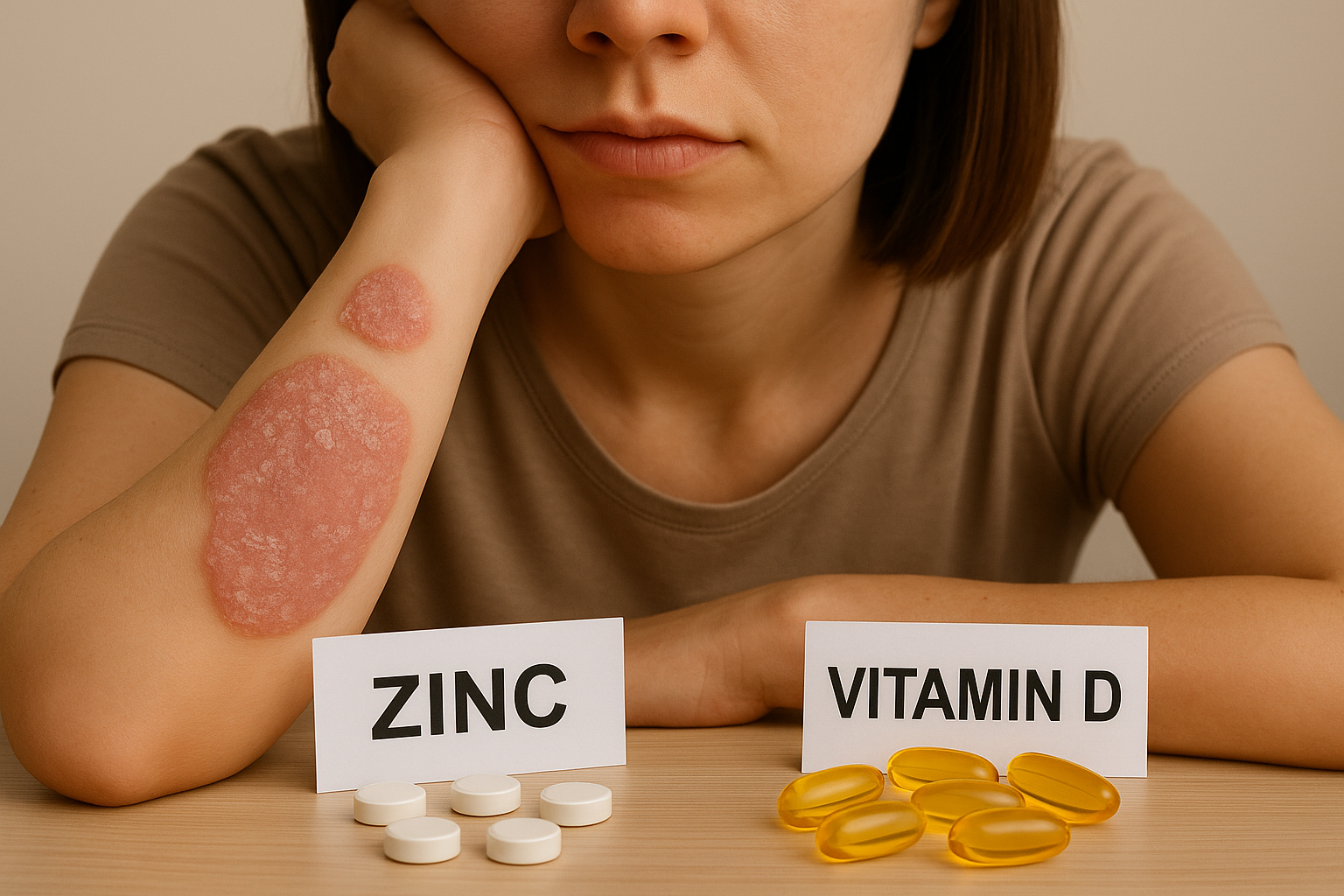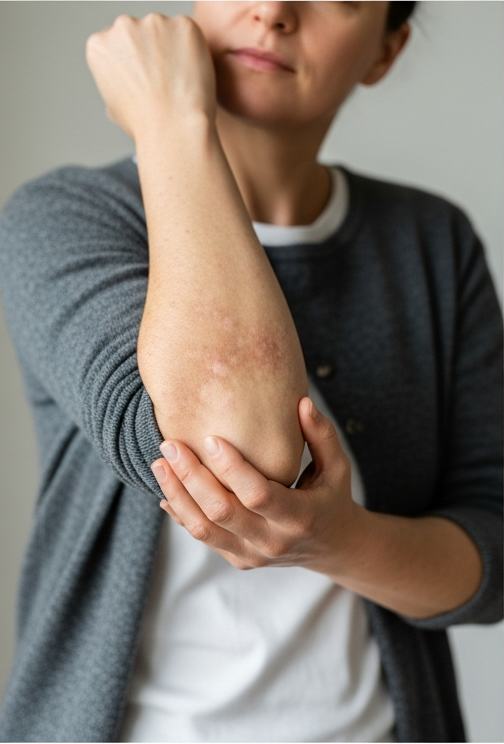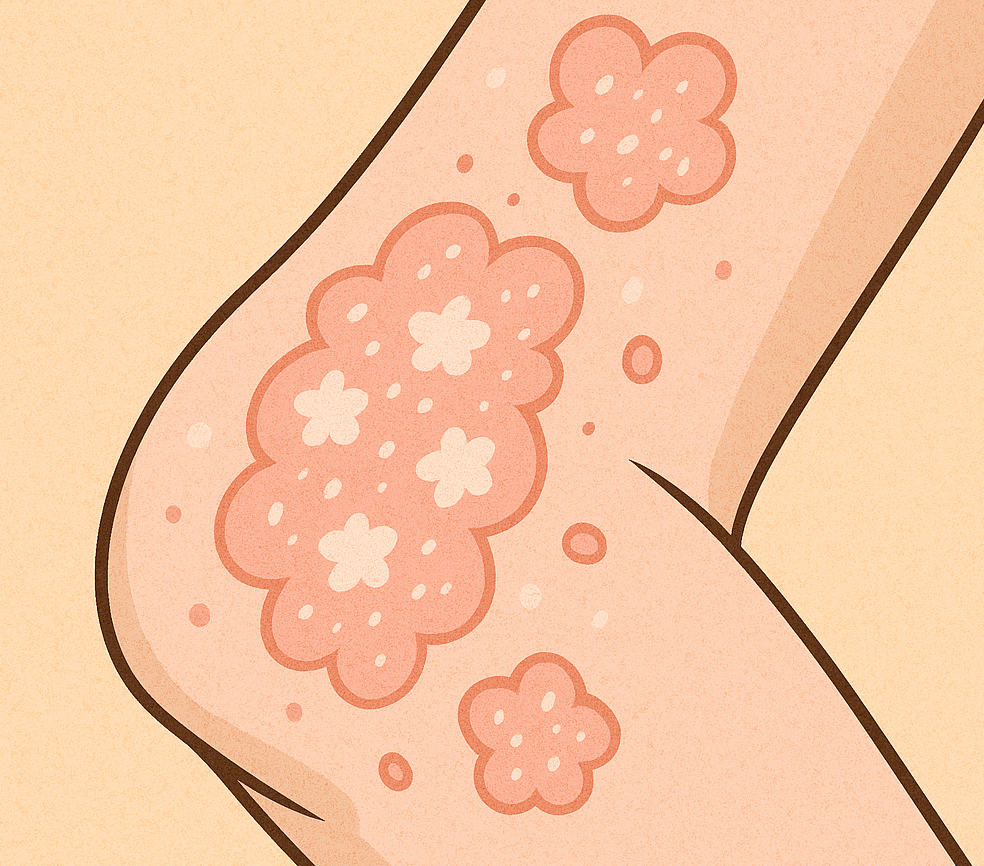Do vitamin or mineral deficiencies cause psoriasis?


have already shared their stories
TL;DR
- No, vitamin or mineral deficiencies do not cause psoriasis. Psoriasis is an immune-driven inflammatory disease, not the result of a single nutrient shortage.
- Low vitamin D levels are common in people with psoriasis and may relate to increased inflammation.
- Zinc supports skin repair and immune balance, but oral zinc supplements are not an effective psoriasis treatment.
- Topical zinc preparations may support scalp psoriasis.
- Vitamin B12 deficiency is not linked to psoriasis development or severity.
- A balanced, anti-inflammatory diet supports general immune and skin health.
What is psoriasis and what causes it?
Psoriasis is a chronic inflammatory skin condition driven by an overactive immune system that speeds up skin cell turnover. This leads to thick, red, scaly plaques, often on the scalp, elbows, or knees.
Genetics, immune dysregulation, and lifestyle or environmental triggers—such as stress, infections, smoking, or obesity—contribute to its development.
Nutrition can influence inflammation, but no single vitamin or mineral deficiency causes psoriasis. Research continues to explore how nutrients may affect immune activity or skin health.
Does vitamin D deficiency cause psoriasis?
No. Vitamin D deficiency does not cause psoriasis.
However, low vitamin D levels are common among people living with psoriasis and often correlate with more pronounced inflammation. Vitamin D plays a role in immune regulation and keratinocyte growth.
Clinical guidelines note that healthcare professionals may consider vitamin D supplementation or topical vitamin D analogues when a deficiency is confirmed. This approach helps restore nutritional balance and may complement overall care, but it is not a standalone psoriasis treatment.
Does vitamin B12 and folate deficiency cause psoriasis?
No. Although early studies suggested a possible connection, current evidence does not support a causal link between B12 or folate deficiency and psoriasis.
B12 supplements are not recommended as a psoriasis therapy, as they have not shown consistent effects on symptoms or disease activity.
Does zinc deficiency cause psoriasis?
No. Zinc deficiency does not cause psoriasis.
Zinc plays an important role in skin repair, immune function, and antioxidant activity. Some studies report lower zinc levels in people with psoriasis, while affected skin areas may show higher localized zinc levels. These findings are considered secondary effects of chronic inflammation, not the underlying cause of the disease.
Oral zinc supplementation has not shown meaningful improvement in psoriasis severity and is not part of standard care.
Topical zinc-based products, however, may support scalp psoriasis and have shown similar effectiveness to some standard topical treatments in specific studies.
Summary
Psoriasis is an immune-driven inflammatory condition, not the result of a vitamin or mineral deficiency. Research shows that low vitamin D levels, altered zinc balance, or low B12 levels may appear in people with psoriasis, but these changes are considered consequences of inflammation rather than root causes. Nutrients such as vitamin D and zinc support general immune and skin health, but supplements are not standard psoriasis treatments unless a confirmed deficiency is addressed by a healthcare professional. A balanced, anti-inflammatory diet remains a helpful way to support overall wellbeing.
Disclaimer: This content is informational. mama health offers information and support and does not replace a doctor.

have already shared their stories
- Elmets CA et al. J Am Acad Dermatol. 2019;80(4):1029–1072.
- Menter A et al. J Am Acad Dermatol. 2020;82(5):1445–1486.
- Tzouganakis M et al. Nutrients. 2022;14(12):2467.
- Dogan S et al. Clin Exp Dermatol. 2023;48(7):1198–1206.
- Lajevardi V et al. J Dermatolog Treat. 2016;27(4):316–320.
- National Psoriasis Foundation Clinical Guidelines, 2018.
- Zhao S et al. J Dermatol Sci. 2023;112(1):45–52.







